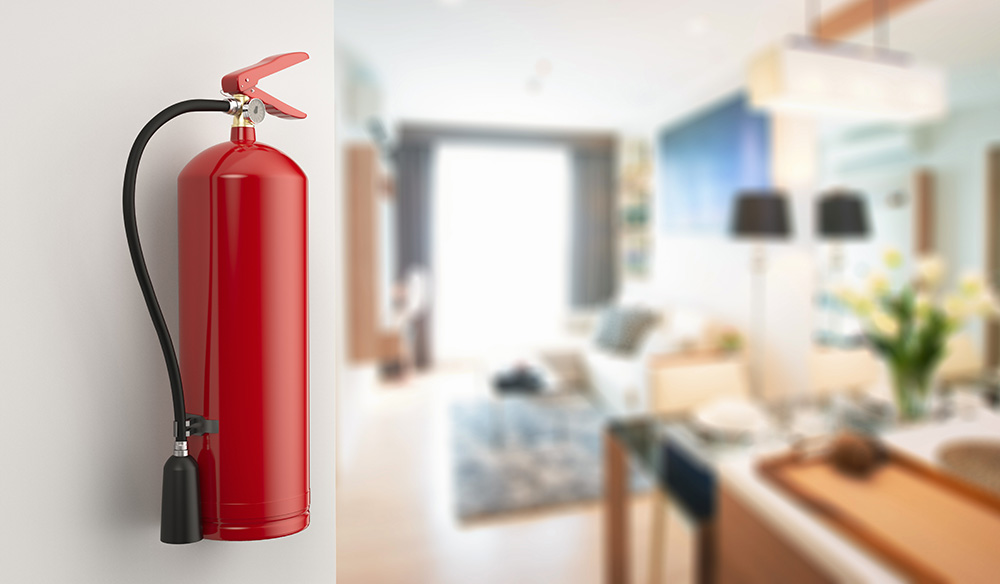
Essential Fire Safety Measures for Homeowners: Often-Overlooked Steps That Can Save Lives
Home fires remain a significant risk, with the National Fire Protection Association (NFPA) reporting an annual average of 350,800 home structure fires between 2016 and 2020. These fires resulted in approximately 2,708 civilian deathsand $7.3 billion in property damage each year. While many homeowners understand basic fire safety, several often-overlooked steps can make a major difference in protecting lives and property.
Fire Detection and Prevention: The First Line of Defense
Maintaining Smoke and Carbon Monoxide Detectors
Smoke alarms are one of the most effective ways to prevent fire-related fatalities, yet three out of five home fire deaths occur in homes without working smoke alarms. Every home should have smoke detectors inside every bedroom, outside sleeping areas, and on every floor, including basements. Smoke alarms should be tested monthly, batteries replaced at least once a year, and the entire unit replaced every 10 years.
Carbon monoxide (CO) detectors are equally important in preventing poisoning from malfunctioning fuel-burning appliances. Since CO is odorless and invisible, a detector is the only way to alert occupants of dangerous exposure. CO detectors should be installed outside of sleeping areas and on every level of the home and tested regularly to ensure they function properly.
Preventing Electrical Fires
Faulty wiring and overloaded outlets are major causes of house fires. The NFPA states that electrical failures account for about 13% of home fires each year. Homeowners should inspect power cords for damage, avoid overloading outlets, and never daisy-chain multiple power strips together. Older homes may require an electrical inspection to ensure wiring is up to modern safety standards.
Mobile Sidebar Ad
Dryer Vent Maintenance
Dryer lint buildup is a hidden fire hazard that many homeowners overlook. The U.S. Fire Administration reports that dryer fires cause an estimated $233 million in property damage each year. While most people clean the lint trap after each load, it’s equally important to clean the dryer vent and ductwork at least once a year to prevent dangerous blockages.
Firefighting Tools Every Home Needs
Strategic Placement of Fire Extinguishers
Fire extinguishers can prevent small fires from growing into major disasters. Every home should have at least one Class ABC fire extinguisher in key areas like the kitchen, garage, and workshop. Family members should be familiar with how to use them, following the PASS technique (Pull the pin, Aim low, Squeeze the lever, and Sweep from side to side).
Proper Storage of Flammable Materials
Flammable liquids like gasoline, propane, and household cleaners should never be stored indoors or near heat sources. Oily rags, commonly used for home improvement projects, should be stored in a metal container with a tight lid to prevent spontaneous combustion. Aerosol cans, often left in garages or near windows, can explode if exposed to high temperatures.
Safe Escape Planning and Emergency Preparedness
Emergency Exit Ladders for Multi-Story Homes
For families living in two-story or higher homes, emergency escape ladders can be life-saving in case of a fire. These ladders should be stored in each upper-level bedroom and easily accessible for immediate use. Homeowners should practice deploying the ladder with their family to ensure everyone knows how to use it safely.
Mobile Sidebar Ad
Ensuring Windows Can Open Easily
Many homeowners don’t realize their windows are painted shut, jammed, or blocked by furniture, preventing a quick escape in an emergency. It’s important to check all bedroom windows regularly to ensure they open smoothly and that security bars, if installed, have a quick-release mechanism.
Clearly Displaying House Numbers for Emergency Responders
If first responders can’t find your home quickly, valuable seconds could be lost in an emergency. House numbers should be clearly visible from the street, reflective for nighttime visibility, and unobstructed by trees or decorations. Numbers should be at least four inches tall to ensure they can be easily read.
Creating a Fire Safety Plan for Your Household
Fireproof Storage for Important Documents
Many homeowners don’t think about what happens after a fire—until it’s too late. Vital documents like birth certificates, passports, and insurance policies should be stored in a fireproof safe to protect them from damage. Digital copies of important files should be backed up on a secure cloud service or an external hard drive stored in a fireproof location.
Practicing Fire Drills
Fire safety isn’t just about prevention—it’s also about knowing how to react if a fire does occur. Families should hold fire drills at least twice a year, ensuring that all members know two ways out of every room and where to meet outside. Parents should also teach children how to open windows, unlock doors, and use emergency ladders.
Mobile Sidebar Ad
Final Thoughts: Fire Safety Starts with Awareness and Action
Taking these often-overlooked fire safety precautions can greatly reduce the risk of home fires and increase your family’s preparedness in case of an emergency. Fire prevention is about more than just having smoke detectors—it requires proactive maintenance, strategic preparation, and regular safety checks.
By making small adjustments and staying vigilant about fire hazards, homeowners can create a safer living environment and protect what matters most.
 Tiffany Krenek has been on the My Neighborhood News team since August 2021. She is passionate about curating and sharing content that enriches the lives of our readers in a personal, meaningful way. A loving mother and wife, Tiffany and her family live in the West Houston/Cypress region.
Tiffany Krenek has been on the My Neighborhood News team since August 2021. She is passionate about curating and sharing content that enriches the lives of our readers in a personal, meaningful way. A loving mother and wife, Tiffany and her family live in the West Houston/Cypress region.

